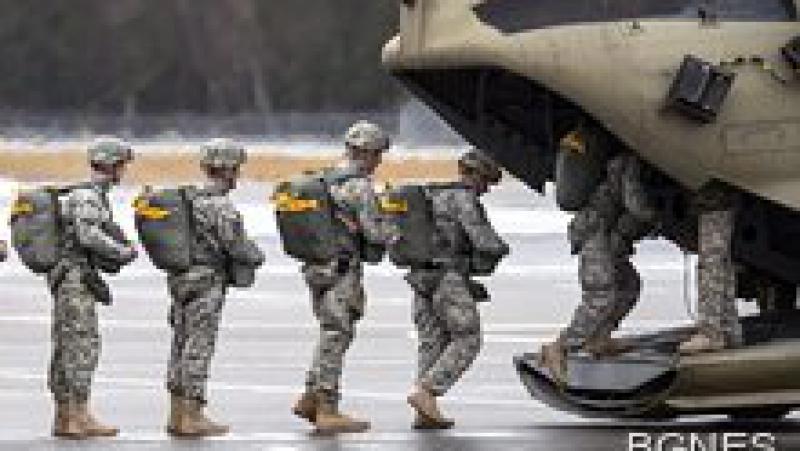Table of Contents
- 0.1 The main consequence will be a sharp increase in tension between the West and Russia.
- 0.2 Issuing authorizations for missile strikes is one of the “war party’s” last options to derail these agreements.
- 1 How might NATO’s involvement evolve if tensions escalate following missile strikes, and what are the possible outcomes for its member countries?
Paris and London followed the US by allowing Ukraine to carry out strikes on Russian territory with its supplied long-range SCALP/Storm Shadow missiles,” reported the “Figaro”, without giving details.
US President Joe Biden has authorized Ukraine to strike Russia using US weapons, it was previously reported by major US media such as the New York Times. The decision comes two months before the change of power between Joe Biden and Donald Trump, who wants to reduce support for Ukraine.
The decision is a major change in the way operations are conducted in Ukraine. The ATACAMS strikes could be used to cover an impending offensive by at least 50,000 troops, including North Korean, into Russia’s Kursk region, which is partially occupied by the Ukrainian military.
Here’s what was known about the potential authorization to use Western long-range missiles against Russian territory:
The main consequence will be a sharp increase in tension between the West and Russia.
Previously, Putin has repeatedly stated publicly that strikes by Western long-range missiles would mean NATO countries going directly to war against Russia, and has even updated nuclear doctrine to reflect this. He noted recently that the Ukrainian armed forces do not have the capacity to handle such weapons because they have neither space intelligence nor specialists who can analyze this data and input it to guide the missiles. He is adamant that only NATO specialists can do this, and therefore accepts such a strike as a direct attack by the North Atlantic Treaty Organization. That is why Moscow has repeatedly stated at various levels that it will give some kind of military response to such an attack.
Now it will certainly be even more difficult to reach an agreement on an early end to the war, since the level of hostility between the West and the Russian Federation will rise dramatically, writes the Ukrainian edition “Strana”. And that’s probably the main purpose of the permission. Thus, the Western “party of war”, while Biden is still in power in the US, is trying to make it extremely difficult to conclude an agreement to end the war, which, according to media reports, Trump is ready to offer after entering the office as President of the United States.
If Russia gives some kind of military response to the Western countries and in particular to the USA, this is also a good option for the “party of war”, because at the very least it can remove the question of any agreements with Russia for Trump and initially put it in a situation of military confrontation. And in the extreme case, if the scale of the confrontation between Russia and NATO increases, this could become a reason to completely interrupt the transfer of power to Trump, leaving it with the Democratic Party. Moreover, for the establishment in Washington, the appointments already announced by Trump look like a real disaster.
The most important problem is that the transition of the confrontation between Russia and NATO to a military stage can very quickly turn into a world and nuclear war with mutual destruction. And then it won’t matter much what the name of the American president is, writes “Strana”.
#Paris #London #authorized #missile #strikes #Russia

How might NATO’s involvement evolve if tensions escalate following missile strikes, and what are the possible outcomes for its member countries?
As the website editor for world-today-news.com, I am excited to bring you an exclusive interview with two experts on the recent developments in the Russia-Ukraine conflict. Our first guest is Dr. Sarah Johnson, a former US Ambassador to Ukraine and a renowned international affairs analyst. Our second guest is Dr. Anton Tolstoy, a professor of political science at the University of Moscow and a prominent Russian affairs expert. Both guests will offer their insights and perspectives about the authorized missile strikes on Russia.
Dr. Sarah Johnson, in your opinion, what are the main consequences of authorizing Ukraine to carry out missile strikes using Western weapons on Russian territory? How will this impact the ongoing conflict in Ukraine?
Dr. Anton Tolstoy, in your opinion, how will Russia respond to these missile strikes? Will it escalate the situation further, and what impact can this have on the international community, particularly NATO member countries?
Dr. Sarah Johnson, do you think the authorization of these missile strikes is an attempt by the “war party” in the West to derail potential peace negotiations between Russia and the incoming Biden administration? Could this lead to a further deterioration of relations between the West and Russia?
Dr. Anton Tolstoy, what implications might this decision have for the North Atlantic Treaty Organization (NATO) and its member countries’ involvement in the conflict? Could it potentially draw them closer to direct military confrontation with Russia?
Both guests, considering the potential escalation of tensions and the possibility of a nuclear response by Russia, how concerned should the international community be about the use of these long-range missiles? Are there any measures that can be taken to de-escalate the situation and prevent a further military escalation?


